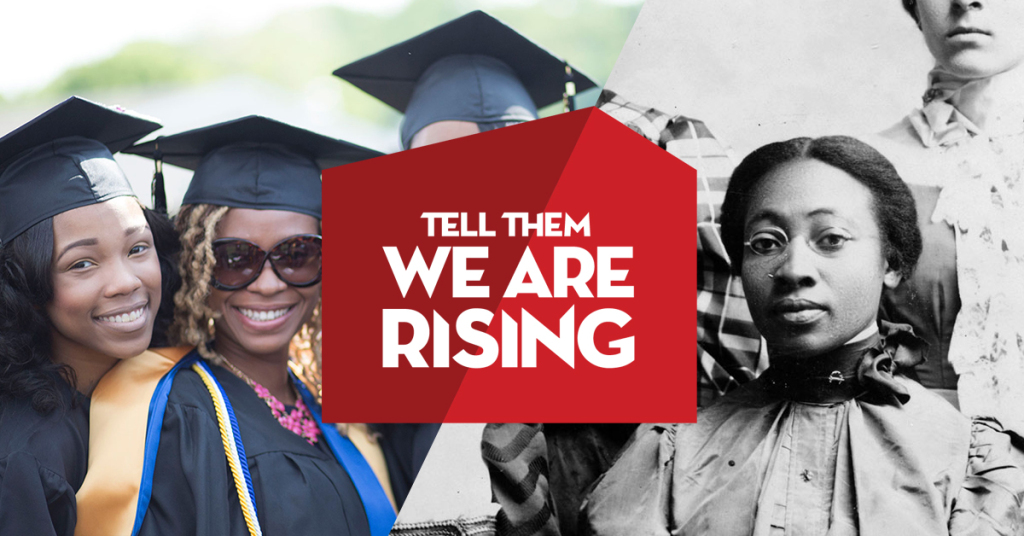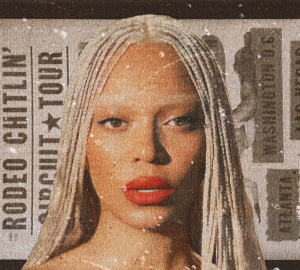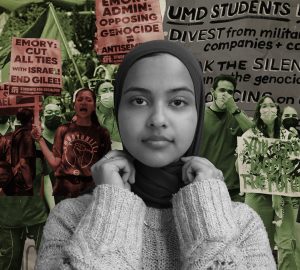‘Melanated’ and educated: The importance of historically black colleges and universities
by Dominique Johnson

For decades, there has been a misconception of why historically black colleges and universities (HBCUs) exist. As college enrollment continues to increase, the misconception grows stronger. People argue that those who attend HBCUs are not “receiving the best education” and that the institutions aren’t as rigorous or measure up to the Ivy and Magnolia Leagues and “top-ranked schools.” The reality is, HBCUs are just as demanding and relevant as the “prestigious” universities in the United States.
HBCUs were created in the mid-1800s during a time of racism and segregation, and higher education amongst black people was neither a priority nor encouraged. Essentially, HBCUs were established due to black people being denied admission to the traditionally white higher education institutions. Educators such as Frederick Douglass made it their obligation to ensure that black people were given the same educational opportunities and treatment like their white counterparts. Their main task was to “uplift the Negro” through education. Today, the message of “uplifting the Negro” through education still exists as the main purpose at the more than 100 HBCUs across the country. The institutions are a safe place where blacks can flourish in their education while feeling included in everything that they do.
According to Thurgood Marshall College Fund, HBCUs make up just three percent of America’s colleges and universities, yet they produce almost 20 percent of all black graduates and 25 percent in the STEM fields of science, technology, engineering and mathematics. This is because blacks are choosing to attend HBCUs because the various campuses are psychologically and socially more liberating than predominantly white institutions (PWIs). This is reflected in the graduation and retention rates amongst blacks at PWIs versus at HBCUs. In addition, the tuition rates at HBCUs are on average about 30 percent less than at comparable institutions. This lessens the stress on parents and students about the cost of attending college. HBCUs deliver higher returns because the cost to attend is not as expensive.
Additionally, HBCUs provide a stable and nurturing environment for those who are most at risk of not entering or completing college (low-income, first-generation college students). Many of these students are academically underprepared for college or just don’t test well for standardized examinations like the ACT and SAT. HBCUs give those students a chance at receiving a great education although their upbringing, test scores or grades tell them otherwise. By giving students an affordable and alternative way to go to college, it shows that the institutions care about the success of black professionals. Black graduates of HBCUs are significantly more likely to have felt supported and cared about while in college to be thriving afterward than their black peers who graduated from PWIs because of this.
The two most important things HBCUs offer black students is a deeper consideration of black history and value proposition. In African-American literature classes, lectures, symposiums, etc., black students are taught knowledge about the rich history of their people that is not normally taught at predominantly white secondary schools and institutions throughout the entire academic year, not just during Black History Month. The extensive understanding of black culture allows students of all races to grasp a better understanding of the black experience and its value.
HBCUs are diverse and distinguished by their unique culture. They are black utopias and are experts in educating and creating opportunities for black people. They are more than just academic environments, HBCUs are communities where black people get a sense of their cultural identity, are lifted in spirit by the faith that is rooted at the colleges and universities, and where young people can achieve excellence without the fear of being singled, harassed, or harmed because of the color of their skin.
There are barely any institutions outside of the HBCU community where black students don’t feel the pressures of being a minority in a predominantly white space or can unapologetically be themselves, take risks, and learn and thrive without having to engage in “Double Consciousness,” as laid out by W.E.B. DuBois.
This is why HBCUs are so very important. Many profound leaders, entertainers, philanthropists, and writers such as Dr. Martin Luther King Jr. (Morehouse College), Oprah Winfrey (Tennessee State University), and Toni Morrison (Howard University) are products of HBCUs because they understood the impact and significance of knowing about black culture in a space with other people who look and talk like them. Attending these wonderful institutions many people call a home away from home allows black students to gain a thorough knowledge of themselves, be around their own kind, and have racial dignity stilled in them. Having this allows them to pursue any school or endeavor after their HBCU experience and still retain racial pride, dignity and most importantly, learn to avoid inferiority complexes that most blacks experience in integrated environments.
Christopher Brown and Kassie Freeman lay out in Black Colleges: New Perspectives on Policy and Practice that HBCUsHBCUs are responsible for 85 percent of black doctors, 80 percent of black federal judges, 75 percent of all black Ph.D.’s, black veterinarians and military officers, 50 percent of black attorneys, engineers, pharmacists, and teachers, 46 percent of black executives and 40 percent of black dentists. Without the presence of the HBCUs that exist today, some black professionals may not have achieved success in those job fields and more. HBCUs continue to educate minorities, give them economic opportunities, and instill great values. Not only have they consistently produced black leaders in their communities and across the nation, but HBCUs today also produce black leaders of the future.
There will probably always be a misconception of why HBCUs exist and people assuming that the curriculum is not as arduous and strenuous as the Ivy and Magnolia Leagues and “top-ranked schools” despite there being no evidence to prove so. HBCUs are just safe places for young black men and women, as well as minorities, to feel like there is an option to seek higher education although society says because of the color of their skin or background they cannot.
There is nothing like an HBCU experience. That’s why HBCUs still and will always matter. They will be relevant today and for a long time to come.
Be sure to watch the documentary “Tell Them We Are Rising: The Story of Black Colleges & Universities” about the history of HBCUs on PBS, tonight, Feb. 19 at 9 p.m.



























